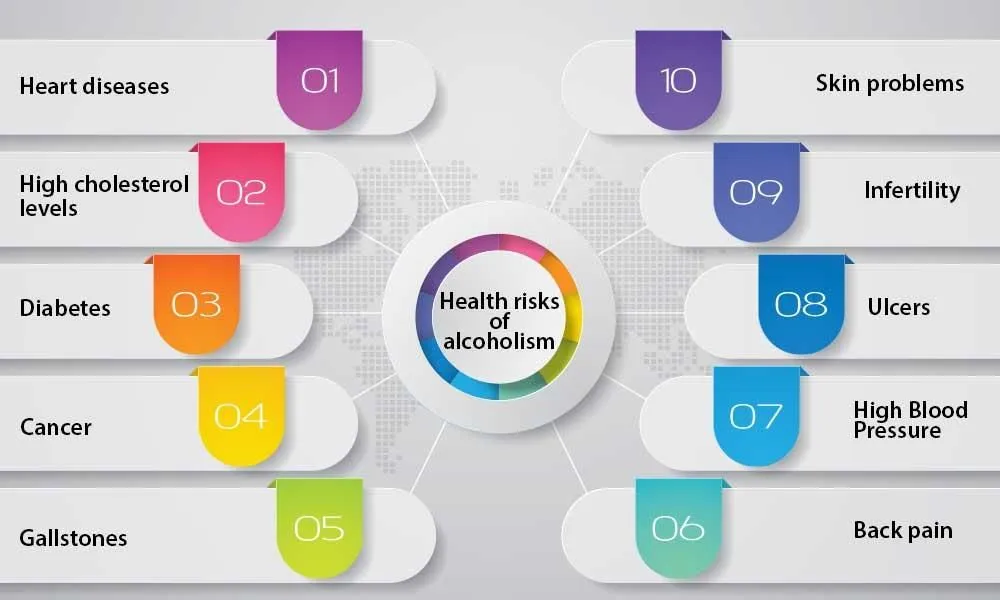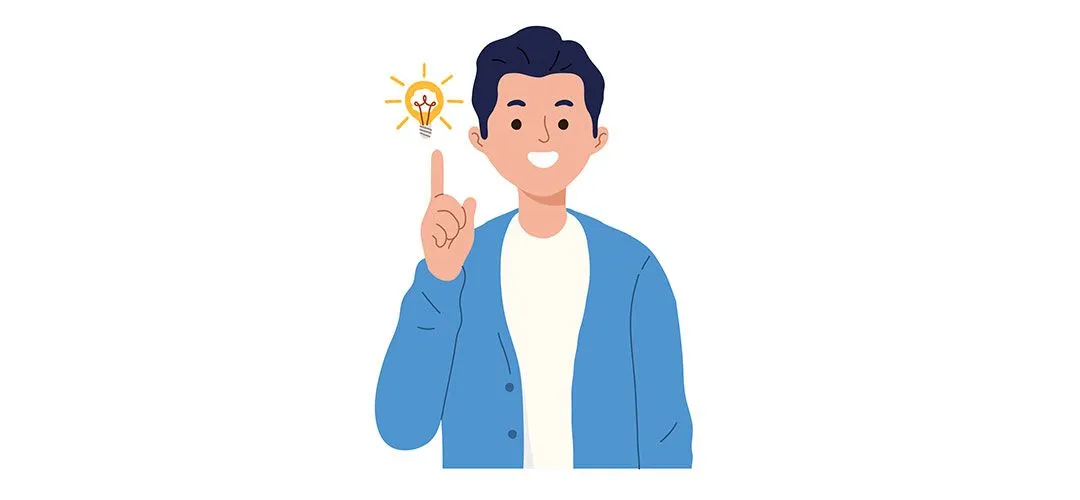If you are obese or overweight, you could be suffering from one or more unhealthy reasons and alcohol is one of the most obvious reasons you could be gaining weight unnecessarily. While there may be some factors related to genetics, illness, medications, a sedentary lifestyle, etc., we would start with the consequences of consuming alcohol first.
One should try to replace one’s drinking habit with some better workout plans. We are offering this article to help you know just why you should care about losing your extra weight, and how you can follow some healthy drinking habits to help your liver perform better.
Alcohol abuse (or alcoholism or alcohol addiction) refers to a deliberate act of consuming too much alcohol way too often, even multiple times a day. It becomes worse with psychological disorders like depression or stress, while certain medications can also trigger such issues.
1. If you consume too much booze every day, you are sure to hurt yourself physically and mentally. It may also hurt your confidence and self-worth, especially if you are going through a lean patch. Worse of all, it may also affect your relationships negatively.
2. The litmus test for alcoholism is that you should check if your love for staying immersed in a bottle of liquor is affecting your lifestyle and routine negatively. You may also check if staying away from this habit causes you to become anxious or panic randomly.
It is thus best to stay away from an inappropriate consumption of alcohol and an inactive lifestyle- and your liver would thank you for it!
Consuming excessive alcohol too often can cause a lot of health issues. Once you start depending on it to run away from your issues, it makes you weaker- both physically and mentally. Our mental therapists advise the following three-step test to know if you are suffering from alcoholism:
1. For women:
Drinking 7 or more drinks per week
Drinking more than 3 drinks at a time
2. For men:
Drinking 14 or more drinks per week
Drinking 4 or more drinks at a time
3. For persons more than 65 years old):
Drinking 7 or more drinks per week
Drinking 3 or more drinks at a time
Here are some symptoms of consuming alcohol in excess:
Your will-power is low
You can’t abstain from drinking more often
You drink compulsively and obsessively
You get angry when someone tries to stop you
You can’t focus on your work
You feel bad after drinking
Your friends and doctors advise you to stay away
You can’t take any positive criticism, be it for work or anything else
You have frequent hangovers
You are getting ill
Your liver and kidneys are getting affected
You are becoming short-tempered
You forget things easily
You shake and tremble a lot
You can’t drive properly
You only think of drinking and nothing else
Most importantly, you just want to drink as much and as long as possible.
When you consume liquor, a major part of it (about 25 percent) is absorbed into your bloodstream immediately. The remaining part continues down your digestive tract and is absorbed into the bloodstream via the small intestine.
After alcohol reaches your bloodstream, it enters the liver where it is broken down. It is a stimulant that makes you feel relaxed from the first drink. As you continue to drink it, its effects amplify and you become “drunk” and it soon leads you to an indulgent habit.
Consuming too much booze too often can affect your body in the following manner:
Make you intoxicated
Stopping the body from burning fat
Accumulation of unused calories
A weakening of the cardiac and digestive system
Increasing your appetite, often irregularly (makes you feel hungry more often)
Craving junk and sugary foods
Staying up late, thus disrupting sleep patterns
We recommend that you start with Yoga to stay strong mentally.
Did you know? Every single gram of booze contains about 9 kcal of energy and zero nutritional value. This energy is burnt first in your system for fuel but it also inhibits the absorption of vitamins in the body. This leads to weight gain besides weakened cardiac and digestive systems.
Consuming liquor in excess is always caused due to binge drinking. A compulsive disorder, it can make the person tank up as much alcohol as possible. Since alcohol dehydrates our digestive system, it is always made worse by drinking less water and then trying to quench the thirst with more booze.
The more you drink in an ill-advised manner, the worse the following health issues become:
The American Heart Association has highlighted that obesity is a major risk factor for developing coronary heart disease and can lead to a heart attack or stroke. Overweight people are at a higher risk of suffering a heart attack before the age of 45. Obese adolescents have a greater chance of having a heart attack before the age of 35 as compared to non-obese adolescents (BMI <30).
Cholesterol is transported through your blood in two ways: the Low-Density Lipoprotein (LDL), which transports cholesterol to the cells that need it, and the High-Density Lipoprotein (HDL), which is the healthy cholesterol that reduces your risk for heart attack. When you are overweight the levels of LDL increases in your blood, thus raising the risks of heart diseases by 20%.
The World Health Organization (WHO) has indicated that more than 90% of diabetes patients worldwide have Type 2 diabetes. Obesity is the most significant factor responsible for Type 2 diabetes because it resists the formation of natural insulin in the body.
The American Heart Association has highlighted in one of the studies that being overweight increases your chances of developing cancer by 50%. Women have a higher risk of developing cancer if they are more than 20 pounds overweight. Regular exercise and weight loss can significantly decrease this risk.
Gallstones are caused when the liver releases excessive amounts of bile in the gallbladder. Being severely overweight increases the risk of developing gallstones. It can always be made worse with eating spicy foods, thus causing too much cholesterol or excess bilirubin.
Obese individuals may have skin that folds over on itself. These creased areas can become irritated from rubbing and sweating, which can lead to skin infections and serious skin problems as well. Here is a free resource explaining just how you can get over it by making some easy changes to your lifestyle.
Our bodies need to be at an appropriate weight to produce the right number of hormones and regulate ovulation and menstruation. Being overweight for females can result in ovarian failure. Overweight men may also have a greater chance of developing motility and a low sperm count.
Gastric ulcers occur when there is an imbalance between the digestive acids and enzymes. The National Institutes of Health (NIH) conducted a study and highlighted the result that obesity can be a contributing factor to the development of gastric ulcers. Overweight men are at a greater risk of developing gastric ulcers than women.
Blood pressure tends to increase with weight gain and age. High blood pressure is the primary cause of death among Americans older than 25 years. Studies have shown that obese patients displayed an increase in blood volume and arterial resistance, which is responsible for high blood pressure and blood sugar levels.
Obesity is one of the contributing factors of back and joint pains as the body has to bear the burden of excess weight. It can also injure the most vulnerable parts of the spine through an injury or structural damage. It may also increase the risk of osteoporosis, lower back pain, arthritis, and osteoarthritis.
We can thus safely assume that all the above risks may be caused by being addicted to alcohol, and this can quickly make you obese and ill. Now is the time to reduce the probability of these diseases in your life by simply shedding off those extra pounds.
Excessive drinking isn’t good for you. Binge drinking can fry up your liver and also may lower the quality of your blood. For weight watchers, it only offers unused calories that convert to faster weight gain and heart diseases.
Yes, it surely can. You would almost always find heavy drinkers being characterized as obese (with a BMI of more than 30) and with a potbelly. It is so because the extra calories that are found in liquor are stored as fat in the body, especially in the belly.
Yes and No.
It depends on what type of cocktail you are consuming and how much of it you are taking every day. If you drink in moderation, you would help your digestive system run in top gear but the line between moderation and indulgence is very thin. Most people fail to see it, they just go over speed and ram their sanity into madness, riding on a bottle of booze or two.
Stress is a major factor that is directly linked to weight gain and a myriad of health issues. Alcohol, if consumed in moderation, can relax you and make you feel good. It can also help you eliminate the stress caused by huge workloads, a nagging partner, a failing relationship, etc.
If it helps you unwind, then the positive effects of your favorite intoxicant might outweigh its negative effects. However, you should stay away from taking refuge in a glass of wine every day and night. It might take some time for you to get going, but you would need to.
1. Never use alcohol to run away from your problems. If you use it to remedy your misery, you may want to consult a mental therapist and reduce your intake.
2. Red wine is packed with antioxidants and is one of the best alcoholic beverages. Note that only one glass of wine per day is recommended.
3. If you’re the type of person who intends to drink one or two and ends up drinking six, reevaluate your goals and try to abstain from booze altogether.
4. If your goal is to lose weight and gain muscle fast, avoid it as much as possible because it is devoid of nutrients and packed with calories.
5. If you need to lose weight because of a wedding or a competition, it’s best to eliminate it from your diet completely. Liquor can mess up your sleep patterns and cause hormonal imbalances which can hinder you from reaching your goals on time.
This should offer you a clearer picture as to why the consumption of liquor is so bad, even if taken in moderate amounts every day. The effects only become worse once you become habitual to drinking and it only leads to a downward spiral of poorer health and weaker financial endeavors.
As a rule of thumb offered by the Alcohol Research Current Research, women should not go above one drink and men should not go above two drinks in any one day. Women should also not go above 7 drinks and men should not go above 14 drinks in a week.
Heavy or binge drinking may make you indulgent and weaker. It may cause you to drink even more, thus dehydrating you and making you lose your better sense of judgment.
There is a lot of difference between being fit and being fat. The latter comes with a lot of illness, physical inhibitions, and mental disturbances, and not to say the shame of being called ‘out of shape’ or ‘obese.’ Obesity refers to an abnormal accumulation of fat in several parts of the body, especially on the belly, lower back, thighs and arms.
Heavy drinking is a prequel or a sequel to unwanted weight gain and it only creates more problems than the solutions that it offers. While a person may also be fat or overweight due to genetic reasons, medications, or stress too, its most common cause is living an indulgent lifestyle.
As per the classification from WHO, obesity is mainly of 3 types:
Severe obesity: a BMI of ≥ 35 or 40 kg/m2
Morbid obesity: a BMI of ≥ 35 kg/m2
Super obesity: a BMI of ≥ 45 or 50 kg/m2
If you are overweight or obese, the probabilities of developing heart disease, diabetes, and high blood pressure increase significantly. They only add up to more physical and mental woes because one generally tries to ignore them till the point they can’t be because they have become way more significant over the years.
Over half of the world’s population is suffering from the serious problem of obesity, which is the leading cause of many life-threatening diseases. Eating and drinking in an ill-advised manner regularly will make it worse.
Liquor dehydrates you and you drink more of it to reduce thirst. It also causes the body to remove exceedingly high amounts of fluid which can be bad for the body. The calories in it are easy to consume and a drinker may consume more than he intends to, even without realizing it.
Consuming it obsessively only makes it worse. Every drink causes a spike in insulin secretion and a consequent fall in blood sugar levels (a serious medical condition known as hypoglycemia). It could cause fatigue, sweaty hands, and a feeling of being jittery.
Consulting a mental therapist and a fitness expert would be the best possible thing to build your strength up, both physically and mentally. They can also help you decipher various patterns of your thinking patterns to know why and at what times you have the highest urge to have some booze. Once they know of the patterns and results, they can help you with a better care and fitness plan.
You can well imagine the consequences of being overweight and indulgent, and it would thus be best to focus your energy on a better physical fitness routine. A sane approach would be to stay away from alcohol and other related drinks that only create havoc on your liver and make it worse. The more you stick to the positive changes, the better results you would get over time.




